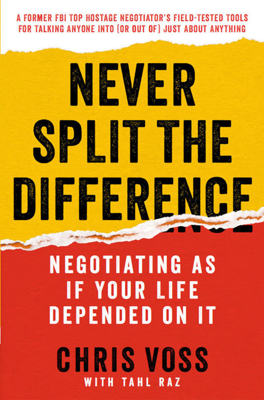Beware “Yes”—master “No”
Transforming "No" in Negotiations
Value of "No" Over "Yes"
In negotiations, the word "No" carries more value than "Yes" because it offers opportunities to clarify desires and objectives by understanding and eliminating undesirables. "No" serves as a safe, comfortable response that maintains the status quo, providing control and allowing for meaningful negotiation from thereon.
Development of "No" Awareness
Chris Voss developed an appreciation for the complexity of "No" early in his career. He realized that it doesn't signal rejection but rather a decision to maintain the current situation due to fear of change or discomfort with new proposals.
Starting with 'No' in Real Scenarios
- FBI Example: In the FBI, using dialogue that encouraged suspects to say "No" led to easier, less violent resolutions than direct demands.
- Negotiation Example: Asking pointed, "No"-oriented questions can empower the other party by letting them feel control over the decision-making process.
Psychological and Practical Applications of "No"
Autonomy and Control
Allowing counterparts to say "No" respects their need for autonomy and control, which can de-escalate tension and make them more open to genuine conversation and compromise.
Impact of "No" on Negotiations
- "No" provides an emotional shield, allowing parties to express their discomfort or disagreement safely.
- It often leads to better understanding as clarifying follow-up questions can be more pointed and targeted after a "No" response.
- Using "No" strategically can open paths to reassess and explore other possibilities that might not be considered if a premature "Yes" is given.
Techniques to Engage Through "No"
Strategic Mislabeling
Intentionally mislabeling an emotion or desire of the counterpart can provoke them to correct you with a "No", thereby engaging in the conversation and providing more accurate information about their feelings or intentions.
Asking for Negative Responses
Inviting the counterpart to discuss what they would reject enhances their comfort in the negotiation, as they feel their boundaries are respected.
Adjusting Perception of "No"
Changing Perception to Empower Negotiators
Viewing "No" as a protective response rather than a barrier encourages negotiators to leverage it as a tool for deeper engagement rather than viewing it as a setback.
Misconception of 'No' as a Negative Outcome
The typical negative framing of "No" in negotiations often leads to missed opportunities for understanding and agreement. Recognizing "No" as a starting point rather than an end can dramatically shift the dynamics of a negotiation.
Practical Advice for Harnessing the Power of "No"
Ensuring Engagement and Response
When faced with non-responsive counterparts, provoking a "No" can compel them to engage. For example, asking "Have you given up on this project?" forces the counterpart to respond, either reaffirming their interest or providing a clear end to the engagement.
Applying 'No' in Complex Negotiations
Employing a "No"-forward approach can simplify complex negotiations by allowing negotiators to gradually build toward agreement from a safe starting point of clear and mutual understanding.
By converting "No" from a feared response to a powerful tool in negotiations, negotiators can facilitate conversations that respect all parties' limits and needs, paving the way for more effective resolutions.
